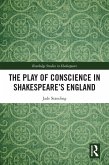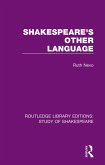Dieser Download kann aus rechtlichen Gründen nur mit Rechnungsadresse in A, B, BG, CY, CZ, D, DK, EW, E, FIN, F, GR, HR, H, IRL, I, LT, L, LR, M, NL, PL, P, R, S, SLO, SK ausgeliefert werden.
--Ursula Potter, Sydney University
"The prodigal son is a familiar paradigm, but I had never heard of the underlying idea of the cockered child before reading Julian Real's original and careful book. He brings into creative focus a key cultural notion in Shakespeare's world that we have forgotten."
--Emma Smith, University of Oxford









